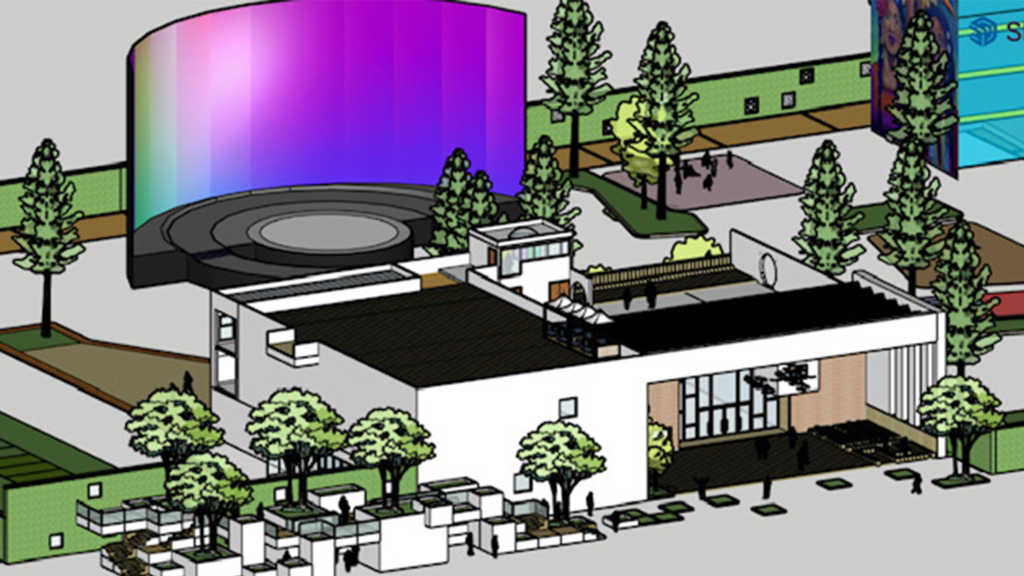Doctoral Student Joanna Ali Guides iScholar Students to Victory, Advances Her Research Through Work with iScholar Program

Educators do not always get an opportunity to follow their students throughout multiple years of their educational journey. However, through her work with iScholar, NC State College of Education doctoral student Joanna Ali has had the opportunity to witness a group of Durham students achieve multiple successes from middle school to high school.
Developed by Associate Professor DeLeon Gray, iScholar is an after-school program that gives students the opportunity to collaborate on meaningful projects and speak to issues they identify within their own communities while developing a sense of belonging.
Ali, a former STEM teacher at Neal Middle School in Durham, enrolled in the College of Education to earn her Ph.D. in the Teacher Education and Learning Sciences educational psychology concentration after working with the iScholar team at her school. As a doctoral student, she has worked on the project as a graduate assistant for several years.
“It has been rewarding to be able to see how students have grown over the years,” Ali said. “It has been inspiring to witness where all of their hard work, dedication and creativity is leading them.”
Back in 2019, the iScholar team at Neal Middle School won first place in a national design competition hosted by the Association for Learning Environments for their innovative school of the future. Now, four years later, the same team, as high school students, have won the Southeast Region of an international school design competition.
For this year’s competition, the iScholar students designed the Sustainable Open Learning (SOL) Academy, which is a high school designed with the mission of sustaining the culture and mental health of students.

The school’s acronym, SOL, is also the Spanish word for sun and is reflective of the fact that the building is powered by solar panels and incorporates outdoor learning spaces. The term is also a play on words, as the school aims to touch the soul of every student by supporting their mental health, Ali said.
The school design utilizes hip-hop architecture and trauma-informed design frameworks to honor culture and create a sense of empowerment for youth while allowing all students to adapt spaces within the school to their own personal creativity.
“Their school design was compelling on many levels and each jury member walked away from their presentation being able to clearly visualize their space, inside and out, including the activities and learnings that will take place,” one of the judges said about the design. “One of the most impactful pieces was their approach to hip-hop education to involve a range of people through full body engagement. We all learned something from them.”
Working with the iScholar students over the past four years, Ali said, has been an amazing experience in which she has watched youth use their creativity to become change agents in their community as well as use their design skills to achieve personal goals and pursue passions that uplift their community.
The experience has also helped Ali grow as a scholar, preparing her to do community-engaged work and view research as something that should be done in partnership with youth.
“I plan to continue to engage youth in every aspect of my work and research as a future faculty member and hope to bring resources into schools and communities that lend themselves to power building,” she said. “Most importantly, I think that iScholar has allowed me to do the work that I am truly passionate about and see how it is connected to scholarship. In taking an untraditional approach to research and scholarship, I hope to inspire and encourage other scholars along the way to do research in ways that center and sustain the culture of the community they are working in.”
Ali’s research is already making an impact in her field through two co-authored articles published within the past year.
“Urban Middle Schoolers’ Opportunities to Belong Predict Fluctuations in Their Engagement Across the School Day,” published in Urban Education, explores the creation of the Opportunities to Belong survey measure for urban middle school students, which found that shifts in opportunities to belong predicted fluctuations in student engagement across different academic courses. The paper also provides a framework for how researchers can engage in an asset-based school partnership.
“This was an important topic for me because this paper shows how educators can influence the sense of belonging that students are feeling in their individual classrooms even if there are other barriers for students throughout the school day,” Ali said.
“The Cultural Significance of “We-Ness”: Motivationally Influential Practices Rooted in a Scholarly Agenda on Black Education,” published in Educational Psychology Review, introduces the construct of “we-ness” to unite a broad array of researchers seeking to design motivationally supportive learning environments for Black students.
The paper outlines the cultural significance of freedom dreaming, stressing the communal “why,” remembering, and steering and voicing; explaining how these practices are essential for acknowledging and leveraging students’ cultural assets in learning contexts and supporting students’ development as community leaders and change agents.
“It was important for me to help bring a variety of culturally informed perspectives into the realm of educational psychology. It’s important for me to help move the field of educational psychology from its traditional perspectives to ones that have more cultural significance for Black and Latinx students,” Ali said. “I have been really lucky to be in a department with mentors like Dr. DeLeon Gray, Dr. Christy Byrd and [former College of Education Professor] Dr. Jessica DeCuir-Gunby, who are moving the field forward in this way. “
- Categories:


